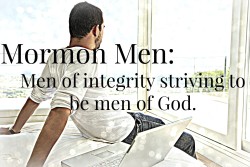These anecdotes are not necessarily about me. Nor are they my compilations, but they continue to influence my life for good and those I love. As a result, my life has been enriched. I encourage you to read them many times then share them with those important to you and repeat to benefit others. These stories may just change your life, as well. They did mine.
A Sure Foundation
Elder John H. Groberg told a story in April Conference 1980 that I would like to share with you today. It is a wonderful example of one man’s eternal perspective and his desire to build his house on the rock.
In the early 1900s, a young father and his family joined the Church in Hawaii. He was enthused about his new-found religion, and after two years of membership, both he and his eldest son held the priesthood. They prospered and enjoyed the fellowship of the little branch. They anxiously looked forward to being sealed as a family for eternity in the temple soon to be completed in Laie.
 Then, as so often happens, a test crossed their path. One of their daughters became ill with an unknown disease and was taken away to a strange hospital. People in Hawaii were understandably wary of unknown diseases, as such diseases had wrought so much havoc there. The concerned family went to church the next Sunday, looking forward to the strength and understanding they would receive from their fellow members. It was a small branch. This young father and his son very often took the responsibility for blessing and passing the sacrament. This was one such Sunday. They reverently broke the bread while the congregation sang the sacrament hymn. When the hymn was finished, the young father began to kneel to offer the sacrament prayer.
Then, as so often happens, a test crossed their path. One of their daughters became ill with an unknown disease and was taken away to a strange hospital. People in Hawaii were understandably wary of unknown diseases, as such diseases had wrought so much havoc there. The concerned family went to church the next Sunday, looking forward to the strength and understanding they would receive from their fellow members. It was a small branch. This young father and his son very often took the responsibility for blessing and passing the sacrament. This was one such Sunday. They reverently broke the bread while the congregation sang the sacrament hymn. When the hymn was finished, the young father began to kneel to offer the sacrament prayer.
Suddenly the branch president, realizing who was at the sacred table, sprang to his feet. He pointed his finger and cried, “Stop. You can’t touch the sacrament. Your daughter has an unknown disease. Leave immediately while someone else fixes new sacrament bread. We can’t have you here. Go.” How would you react? What would you do? The stunned father slowly stood up. He searchingly looked at the branch president, then at the congregation. Then, sensing the depth of anxiety and embarrassment from all, he motioned to his family and they quietly filed out of the chapel.
Not a word was said as, with faces to the ground, they moved along the dusty trail to their small home. The young son noticed the firmness in his father’s clenched fists and the tenseness of his set jaw. When they entered their home they all sat in a circle, and the father said, “We will be silent until I am ready to speak.” All sorts of thoughts went through the mind of this young boy. He envisioned his father coming up with many novel ways of getting revenge. Would they kill the branch president’s pigs, or burn his house, or join another church? He could hardly wait to see what would happen.
Five minutes, ten minutes, fifteen minutes—not a sound. He glanced at his father. His eyes were closed, his mouth was set, his fingers clenched, but no sound. Twenty minutes, twenty-five minutes—still nothing. Then he noticed a slight relaxing of his father’s hands, a small tremor on his father’s lips, then a barely perceptible sob. He looked at his father—tears were trickling down his cheeks from closed eyes. Soon he noticed his mother was crying also, then one child, then another, and soon the whole family.
 Finally, the father opened his eyes, cleared his throat, and announced, “I am now ready to speak. Listen carefully.” He slowly turned to his wife and said, meaningfully, “I love you.” Then turning to each child, he told them individually, “I love you. I love all of you and I want us to be together, forever, as a family. And the only way that can be is for all of us to be good members of The Church of Jesus Christ of Latter-day Saints and be sealed by his holy priesthood in the temple. This is not the branch president’s church. It is the Church of Jesus Christ. We will not let any man or any amount of hurt or embarrassment or pride keep us from being together forever. Next Sunday we will go back to church. We will stay by ourselves until our daughter’s sickness is known, but we will go back.”
Finally, the father opened his eyes, cleared his throat, and announced, “I am now ready to speak. Listen carefully.” He slowly turned to his wife and said, meaningfully, “I love you.” Then turning to each child, he told them individually, “I love you. I love all of you and I want us to be together, forever, as a family. And the only way that can be is for all of us to be good members of The Church of Jesus Christ of Latter-day Saints and be sealed by his holy priesthood in the temple. This is not the branch president’s church. It is the Church of Jesus Christ. We will not let any man or any amount of hurt or embarrassment or pride keep us from being together forever. Next Sunday we will go back to church. We will stay by ourselves until our daughter’s sickness is known, but we will go back.”
Here is anecdote I recently read—a Facebook post really. I did not write this, but I love it. This story makes me want to be more thoughtful and considerate, because the most important things are always accessible and relevant:
Mindful Dad
When I was about eight or nine, my mom burnt some toast.
One night that stood out in my mind is when she had made dinner for us after a very long and rough day at work. She placed a plate of jam and extremely burned toast in front of my dad. Not slightly burnt but completely blackened toast.
 I was just waiting to see if anyone noticed the burnt toast and say anything. But Dad just ate his toast and asked me if I did my homework and how my day was. I don’t remember what I told him that night, but I do remember hearing my mom apologizing to dad for burning the toast. And I’ll never forget what he said: “Sweetie, I love burned toast.”
I was just waiting to see if anyone noticed the burnt toast and say anything. But Dad just ate his toast and asked me if I did my homework and how my day was. I don’t remember what I told him that night, but I do remember hearing my mom apologizing to dad for burning the toast. And I’ll never forget what he said: “Sweetie, I love burned toast.”
Later that night, I went to tell my dad good night and ask him if he really liked his toast burned. He put his arm on my shoulder and said,
“Your mom put in a very long day at work today and she was very tired. And besides, burnt toast never hurts anyone but you know what does? Harsh words!”
Then, he continued to say “You know, life is full of imperfect things and imperfect people I’m not the best at hardly anything, and I forget birthdays and anniversaries just like every other human. What I’ve learned over the years, is that learning to accept each other’s faults and choosing to celebrate each other’s differences, is one of the most important keys for creating a healthy, growing, and lasting relationship. Life is too short to wake up with regrets. Love the people who treat you right and have compassion for the ones who don’t.”
Enjoy Life Now.
Story of The Five Dollar Lawn as told by Bishop Vaughn J. Featherstone (October 1973)
“No one in our Utah town knew where the Countess had come from; her carefully precise English indicated that she was not a native American. From the size of her house and staff we knew that she must be wealthy, but she never entertained and she made it clear that when she was at home she was completely inaccessible. Only when she stepped outdoors did she become at all a public figure–and then chiefly to the small fry of the town, who lived in awe of her.
 “The countess always carried a cane not only for support, but as a means of chastising any youngster she thought needed disciplining. And at one time or another most of the kids in our neighborhood seemed to display that need. By running fast and staying alert, I had managed to keep out of her reach. But one day when I was about thirteen, as I was short-cutting through her hedge, she got close enough to rap my head with her stick.
“The countess always carried a cane not only for support, but as a means of chastising any youngster she thought needed disciplining. And at one time or another most of the kids in our neighborhood seemed to display that need. By running fast and staying alert, I had managed to keep out of her reach. But one day when I was about thirteen, as I was short-cutting through her hedge, she got close enough to rap my head with her stick.
“‘Ouch!’ I yelled, jumping a couple of feet.
“‘Young man, I want to talk to you,’ she said. I was expecting a lecture on the evils of trespassing, but as she looked at me, half smiling, she seemed to change her mind.
“‘Don’t you live in that green house with the willow trees in the next block?’
“‘Yes, ma’am.’ . . .
“‘Good. I’ve lost my gardener. Be at my house Thursday morning at seven, and don’t tell me you have something else to do; I’ve seen you slouching around on Thursdays.’
“When the Countess gave an order, it was carried out. I didn’t dare not come on that next Thursday. I went over the whole lawn three times with a mower before she was satisfied and then she had me down on all fours looking for weeds until my knees were as green as the grass. She finally called me up to the porch.
“‘Well, young man, how much do you want for your day’s work?’
“‘I don’t know. Fifty cents, maybe.’
“‘Is that what you figure you’re worth?”
“‘Yes’m. About that.’
“‘Very well. Here’s the fifty cents you say you’re worth and here’s the dollar and a half more that I’ve earned for you by pushing you. Now I’m going to tell you something about how you and I are going to work together. There are as many ways of mowing a lawn as there are people, and they may be worth anywhere from a penny to five dollars. Let’s say that a three-dollar job would be just what you have done today, except that you’d have to be something of a fool to spend that much time on a lawn. A five-dollar lawn is well, it’s impossible, so we’ll forget about that. Now then, each week I’m going to pay you according to your own evaluation of your work.’
“I left with my two dollars, richer than I remembered being in my whole life, and determined that I would get four dollars out of her the next week. But I failed to reach even the three dollar mark. My will began to falter the second time around her yard.
“‘Two dollars again, eh? That kind of job puts you right on the edge of being dismissed, young man.’
“‘Yes’m. But I’ll do better next week.’
“And somehow I did. The last time around the lawn I was exhausted, but I found I could spur myself on. In the exhilaration of that new feeling, I had no hesitation in asking the Countess for three dollars.
“Each Thursday for the next four or five weeks, I varied between a three-and a three-and-a-half dollar job. The more I became more acquainted with her lawn, places where the ground was a little high or a little low, places where it needed to be clipped short or left long on the edges to make a more satisfying curve along the garden, the more I became aware of just what a four-dollar lawn would consist of. And each week I would resolve to do just that kind of a job. But by the time I had made my three dollar or three and-a-half dollar mark I was too tired to remember even having had the ambition to go beyond that.
“‘You look like a good consistent $3.50 man,’ she would say as she handed me the money.
“‘I guess so’ I would say, too happy at the sight of the money to remember that I had shot for something higher.
“‘Well don’t feel too bad,’ she would comfort me. ‘After all, there are only a handful of people in the world who could do a four-dollar job.’
 “And her words were a comfort at first, but then, without my noticing what was happening, her comfort became an irritant that made me resolve to do that four-dollar job, even if it killed me. In the
“And her words were a comfort at first, but then, without my noticing what was happening, her comfort became an irritant that made me resolve to do that four-dollar job, even if it killed me. In the
fever of my resolve, I could see myself expiring on her lawn, with the Countess leaning over me, handing me the four dollars with a tear in her eye, begging my forgiveness for having thought I couldn’t do it.
“It was in the middle of such a fever, one Thursday night when I was trying to forget the day’s defeat and get some sleep, that the truth hit me so hard that I sat upright, half choking in my excitement. It was the five-dollar job I had to do, not the four-dollar one! I had to do the job that no one could do because it was impossible.
“I was well acquainted with the difficulties ahead. I had the problem, for example, of doing
something about the worm mounds in the lawn. The Countess might not even have noticed them yet, they were so small; but in my bare feet I knew about them and I had to do something about them. And I could go on trimming the garden edges with shears, but I knew that a five-dollar lawn demanded that I line up each edge exactly with a yard stick and then trim it precisely with the edger. And there were other problems that only I and my bare feet knew about.
“I started the next Thursday by ironing out the worm mounds with a heavy roller. After two hours of that I was ready to give up for the day. Nine o’clock in the morning, and my will was already gone! It was only by accident that I discovered how to regain it. Sitting under a walnut tree for a few minutes after finishing the rolling, I fell asleep. When I woke up minutes later, the lawn looked so good and felt so good under my feet, I was anxious to get on with the job.
“I followed this secret for the rest of the day, dozing for a few minutes every hour to regain my perspective and replenish my strength. Between naps, I mowed four times, two times lengthwise, two times across, until the lawn looked like a green velvet checkerboard. Then I dug around every tree, crumbling the big clods and smoothing the soil with my hands, then finished with the edger, meticulously lining up each stroke so that the effect would be perfectly symmetrical. And I carefully trimmed the grass between the flagstones of the front walk. The shears wore my fingers raw, but the walk never looked better.
“Finally about eight o’clock that evening it was all completed. I was so proud I didn’t even feel tired when I went up to her door.
“‘Well, what is it today?’ she asked.
“‘Five dollars,’ I said, trying for a little calm and sophistication.
 “‘Five dollars? You mean four dollars, don’t you? I told you that a five-dollar lawn job isn’t possible.’
“‘Five dollars? You mean four dollars, don’t you? I told you that a five-dollar lawn job isn’t possible.’
“‘Yes it is. I just did it.’
“‘Well, young man, the first five-dollar lawn in history certainly deserves some looking around.’
“We walked about the lawn together in the light of evening, and even I was quite overcome by the impossibility of what I had done.
“‘Young man, she said, putting her hand on my shoulder, ‘what on earth made you do such a crazy, wonderful thing?’
“I didn’t know why, but even if I had, I could not have explained it in the excitement of hearing that I had done it.
“‘I think I know,’ she continued, ‘how you felt when this idea first came to you of caring for a lawn that I told you was impossible. It made you very happy when it first came, then a little frightened. Am I right?’
“She could see she was right by the startled look on my face.
“‘I know how you felt, because the same thing happens to almost everyone. They feel this sudden burst in them of wanting to do some great thing. They feel a wonderful happiness but then it passes because they have said, “No, I can’t do that. It’s impossible.” Whenever something in you says, “It’s impossible,” remember to take a careful look and see if it isn’t really God asking you to grow an inch, or a foot, or a mile, that you may come to a fuller life.’
“Since that time, some 25 years ago, when I have felt myself at an end with nothing before me, suddenly, with the appearance of that word, ‘impossible,’ I have experienced the unexpected lift, the leap inside me, and known that the only possible way lay through the very middle of impossible.”
(Richard Thurman, “The Countess and the Impossible,” Reader’s Digest, June 1958.)
He would do that for me?
 I was one of the few missionaries (in relative terms) that served during the time when the duration of a mission lasted only eighteen months. In fact I received my call the week after President Kimball made the announcement, and my call still said that I was called for a period of two years. But for those of you who may not remember, missionaries already serving had the option to stay the full two years of their call or go home at the point of eighteen month, but new missionaries could not extend.
I was one of the few missionaries (in relative terms) that served during the time when the duration of a mission lasted only eighteen months. In fact I received my call the week after President Kimball made the announcement, and my call still said that I was called for a period of two years. But for those of you who may not remember, missionaries already serving had the option to stay the full two years of their call or go home at the point of eighteen month, but new missionaries could not extend.
At the time, I thought it unfortunate because I was called to a mission where I spoke a foreign language. The last six months were to be my most productive. It was during that very six months where I met the woman who has become my wife. Not long after I had returned home, the mission duration was changed back to two years. So I have asked myself many times, “Would the Lord make such a significant change just for me?”
While you ponder that thought, I have another true story to share with you. Many years ago, when I was just a young man, a boy really, my family made a move to the country. This had been a dream of my mother’s for many years. And through a series of miraculous events, we found a dream-come-true piece of property, purchased it, and there started a homestead—a farm really, but the produce grown and animals raised were for our own use. It was 25 miles up a windy road where we had ten acres of land, but church meetings were held in the town down the river.
We would all rise early and get down to town so dad and the boys could attend priesthood meeting. Then, the men would join the women at the park to wait for Sunday School. After the mid-day meeting we would return to the park until it was time for sacrament meeting. It made for a very long day. I don’t know how long we could have kept it up, but we did. Until unbeknownst to all of us at the time, the brethren were considering changing to what has become known as the consolidated church schedule…three consecutive hours of church. It was a blessing to us then. It is a blessing to us now. Would he do that for us?
Finally, after the Lord held his gospel in reserve for nearly 2000 years (see Amos 8:11,12) until this day when he has revealed the gospel in its fullness with all the rights, powers, blessings, and ordinances needed to help us return to heaven as families and there learn, follow, and become the people our potential enables us to become. The very purpose and glory of the God of Heaven and Earth is bringing to pass our immortality and eternal life. (Moses 1:39)
And he is doing that for you and for me and for men and women of all ages.
About Walter Penning
In 1989, Walter Penning formed a consultancy based in Salt Lake City and empowered his clients by streamlining processes and building a loyal, lifetime customer base with great customer service. His true passion is found in his family. He says the best decision he ever made was to marry his sweetheart and have children. The wonderful family she has given him and her constant love, support, and patience amid life's challenges is his panacea.
Twitter •








These are really inspirational stories. Thank you for sharing them.